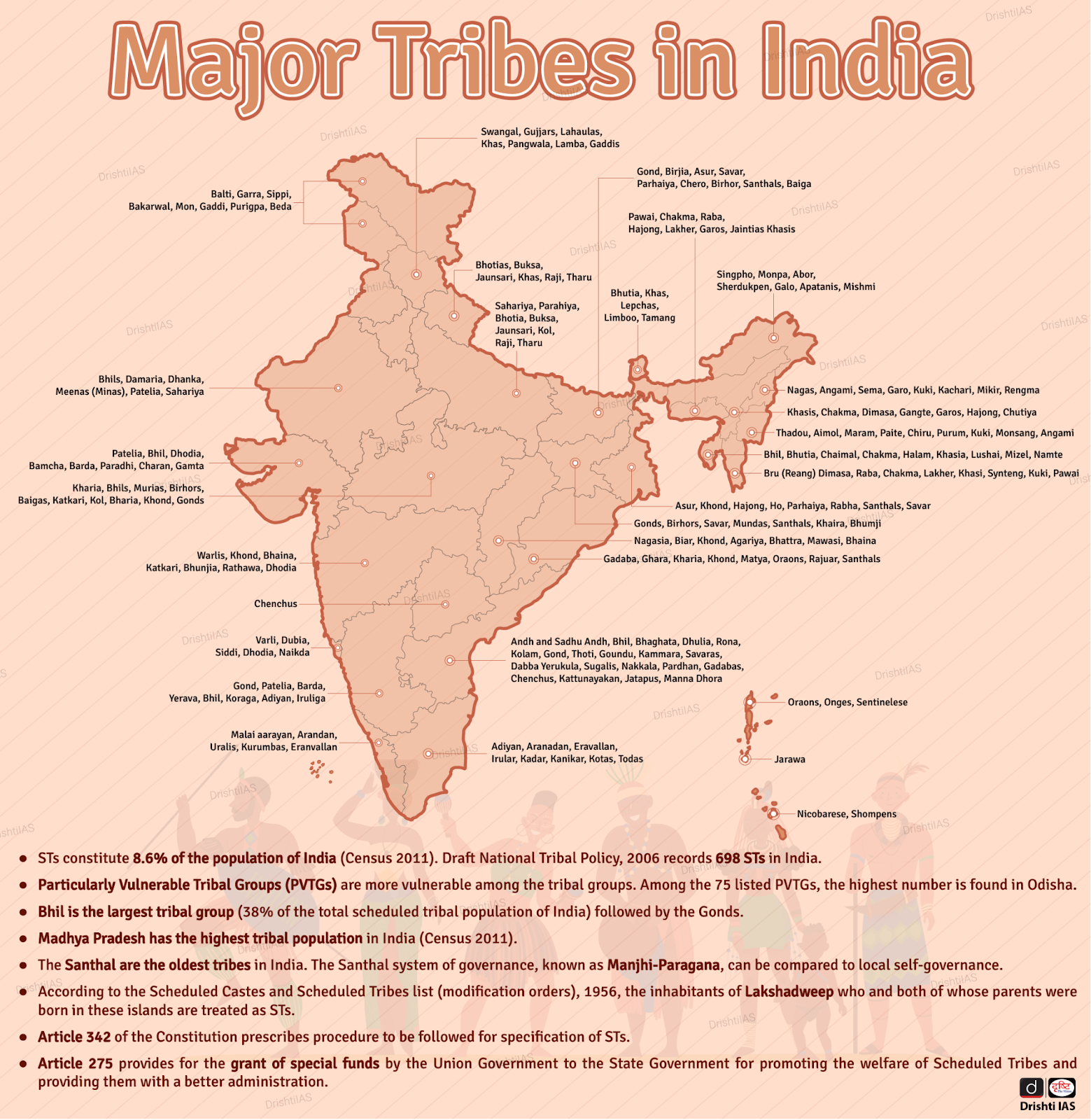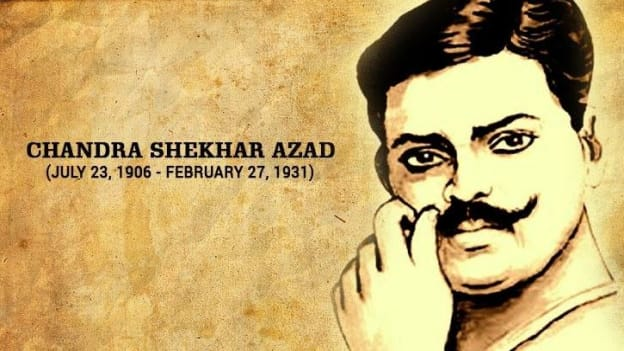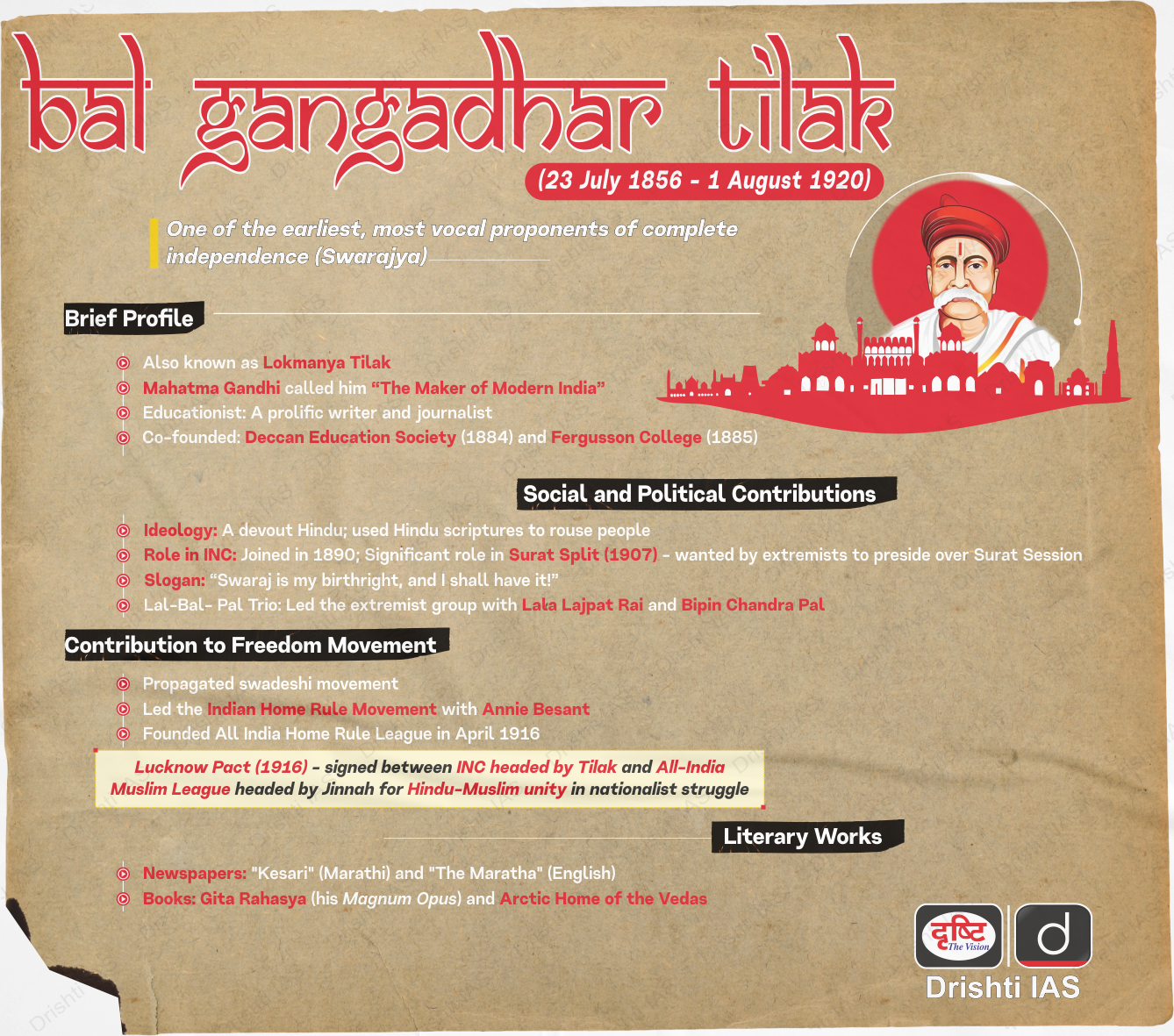Madhya Pradesh Switch to Hindi
MP Leads the Nation in PESA Act Implementation
Why in News?
Madhya Pradesh has emerged as a national leader in implementing the Panchayats (Extension to Scheduled Areas) Act, 1996 (PESA), across 88 tribal blocks, empowering tribal communities to resolve disputes locally through traditional Chaupals.
- This empowerment initiative has successfully removed the dependency on police stations for minor conflicts, proving a boon for the tribal population in the state.
Key Points
- National Recognition For MP’s Efforts:
- The Ministry of Panchayati Raj has highlighted the state's success stories in a special booklet, including success stories from Madhya Pradesh, further acknowledging the state’s role in setting a national benchmark.
- Dispute Resolution & Financial Empowerment under the Act:
- Over 8,000 disputes, including family and land-related issues, have been resolved through community meetings called Chaupals.
- The Act encourages a collaborative approach to justice, maintaining tribal traditions while ensuring the community's well-being.
- The state's efforts also include financial empowerment, with the opening of over 11,000 bank accounts to ensure smooth financial transactions for the tribal communities.
- Over 8,000 disputes, including family and land-related issues, have been resolved through community meetings called Chaupals.
- Committees Established under the Act:
- Several committees work to oversee the implementation of the PESA Act, such as:
- Peace and Dispute Redressal Committee
- Forest Resource Planning and Control Committee
- Sahayogi Matru Samiti (Mothers' Cooperation Committees)
- These committees play a vital role in ensuring the smooth functioning of the Act and its goals in the state.
- Several committees work to oversee the implementation of the PESA Act, such as:
PESA Act, 1996
- About:
- The PESA Act was enacted on 24th December 1996 to ensure self-governance for people living in tribal areas, called Scheduled Areas, through traditional village assemblies known as Gram Sabhas.
- The Act extended the provisions of Panchayats by providing self-tribal rule to the tribal areas of Fifth Schedule states.
- Legislation:
- The Act defines Scheduled Areas as those mentioned in Article 244(1), which states that the Fifth Schedule applies to Scheduled Areas and Scheduled Tribes in states other than Assam, Meghalaya, Tripura, and Mizoram.
- Scheduled Areas of India, which are areas notified by the President as predominantly inhabited by tribal communities.
- 10 states have notified Fifth Schedule areas that cover (partially or fully) several districts in each of these states.
- These include Andhra Pradesh, Chhattisgarh, Gujarat, Himachal Pradesh, Jharkhand, Madhya Pradesh, Maharashtra, Odisha, Rajasthan, and Telangana.
- Significant Provisions:
|
Provisions |
Description |
|
Acts as a forum for community participation, overseeing development plans. |
|
|
Village-level Institutions |
Establishes Gram Panchayat, Gram Sabha, and Panchayat Samiti for local services. |
|
Powers & Functions |
Grants significant powers to manage resources and regulate economic activities. |
|
Consultation |
Mandates consultation with the Gram Sabha before development projects in Scheduled Areas. |
|
Funds |
Ensures funds are transferred to the Gram Panchayat for effective functioning. |
|
Land Rights |
Protects tribal land rights, requiring consent for land acquisition or transfer. |
|
Cultural & Social Practices |
Safeguards tribal customs and prohibits interference with cultural practices. |
Madhya Pradesh Switch to Hindi
Birth Anniversary of Chandra Shekhar Azad
Why in News?
The Prime Minister paid tributes to Chandra Shekhar Azad on his birth anniversary (23rd July, 2025).
- He was a prominent Indian leader and revolutionary who fought bravely for India’s independence.
Key Points
Chandra Shekhar Azad
- About: Chandrashekhar Azad was born on 23rd July, 1906 in Bhabra (now in Madhya Pradesh).
- Role in Freedom Struggle: He was deeply impacted by the Jallianwala Bagh massacre (1919) and joined the freedom struggle at a young age.
- Joined the Non-Cooperation movement (1921) as a student and became a key member of the Hindustan Republican Association (HRA) after Gandhiji suspended NCM in 1922.
- HRA was a revolutionary organization, established in 1924 in Kanpur by Sachindra Nath Sanyal, Ram Prasad Bismil, and Jogesh Chandra Chatterjee, to organise an armed revolution to overthrow the colonial government.
- Members were Bhagat Singh, Chandra Shekhar Azad, Sukhdev, Roshan Singh, and Rajendra Lahiri.
- HRA was later reorganised as the Hindustan Socialist Republican Army (HSRA).
- It was established in 1928 at Feroz Shah Kotla in New Delhi by Chandra Shekhar Azad, Ashfaqulla Khan, Bhagat Singh, Sukhdev Thapar and Jogesh Chandra Chatterjee.
- Joined the Non-Cooperation movement (1921) as a student and became a key member of the Hindustan Republican Association (HRA) after Gandhiji suspended NCM in 1922.
- Revolutionary Activities: Kakori Train Action (1925).
- Assassination of JP Saunders (1928) to avenge Lala Lajpat Rai's death.
- Attempted to blow up the Viceroy Lord Irwin's train in 1929.
- Legacy: He was martyred in a police encounter at Alfred Park, Allahabad (now Prayagraj) (27th February 1931) by shooting himself rather than being captured.
Rajasthan Switch to Hindi
Felling of Khejri Trees
Why in News?
A significant environmental conflict has emerged in Rajasthan’s Thar Desert, particularly in Bikaner district, as solar energy companies begin felling centuries-old Khejri trees for land acquisition.
- This clash between ‘greenery’ (the preservation of the environment) and ‘green energy’ (solar power development) has led to widespread protests, with local farmers and environmentalists demanding stricter tree protection laws.
Key Points
Khejri Trees
- About: Khejri or Khejdi (Prosopis cineraria), also known as shami in Rajasthan, is a hardy, drought-resistant tree that has been a symbol of survival in the harsh desert.
- Khejri trees that are hundreds of years old are easily found in the fields of the western districts of Rajasthan.
- The Khejri leaves, locally called luk, are used as nutritious feed for domestic animals such as camels, goats, sheep, etc.
- The fruit Sangri is an important part of Rajasthani food.
- Recognition: Khejri was officially declared Rajasthan’s state tree in 1983.
- Under this status, the state government imposed restrictions to protect the tree, including prohibiting felling it under the Rajasthan Tenancy Act, 1965, and the Rajasthan Forest Act, 1953.
- Cultural & Spiritual Importance: In 1730 AD, a small village located 26 km southeast of Jodhpur in Rajasthan became the site of one of the first and most intense environmental protection movements in India.
- The ‘martyrs’ (notably Amrita Devi) of this movement were members of the Bishnoi community, who gave their lives to protect the Khejri trees.
- In the 1970s, this sacrifice became the inspiration behind the Chipko Movement.
- Alternative Strategies for Preservation:
- Environmentalists argue that solar power can be generated through alternatives that do not require large-scale deforestation.
- For example, solar panels can be installed on rooftops, government buildings, or even on long canals (similar to successful projects in Punjab).
- While these methods may be more expensive, they would safeguard the region's biodiversity.
Rajasthan Switch to Hindi
Rajasthan City Gas Distribution (CGD) Policy 2025
Why in News?
The Rajasthan Cabinet approved the Rajasthan City Gas Distribution (CGD) Policy-2025, which seeks to strengthen the gas-based energy framework within the state.
Note: CGD networks are an interconnected system of underground natural gas pipelines for supplying Piped Natural Gas (PNG) and Compressed Natural Gas (CNG).
Key Points
Rajasthan City Gas Distribution (CGD) Policy 2025
- About:
- It is designed to facilitate the supply of clean, safe, and environment-friendly natural gas to the public while helping to reduce carbon emissions across the state.
- Time Period of the Policy:
- The policy will remain in effect until 31st March, 2029, or until another policy is introduced to replace it.
- This five-year validity gives the government a framework for mid-term review and course correction, if needed.
- Single-Window System:
- A dedicated CGD portal will be developed as part of the implementation mechanism. This digital platform will act as a single-window system to manage all applications, track approval status, and provide necessary information to stakeholders.
- The portal is expected to improve transparency, accountability, and operational speed, removing bureaucratic delays and fostering a more business-friendly environment.
- Significance:
- Infrastructure Investment: The implementation of this policy will increase investment in CGD infrastructure, fostering growth in the sector.
- Expansion of PNG and CNG Networks: It will support the expansion of PNG and CNG networks, particularly in small towns and urban areas that currently lack access to these facilities.
- Simplified Regulatory Processes: The policy introduces simplified, time-bound procedures for CGD companies to streamline the process of obtaining permissions, land allocation, and government approvals required to set up and operate gas infrastructure.
- Environmental and Economic Impact: The policy aligns with national objectives of expanding the use of natural gas across residential, industrial, and transportation sectors.
- By increasing access to natural gas in previously underserved regions, it aims to promote environmental sustainability, improve public health, and attract economic investment in energy infrastructure.
Maharashtra Switch to Hindi
Birth Anniversary of Lokmanya Bal Gangadhar Tilak
Why in News?
Lok Sabha Speaker Shri Om Birla paid tribute to Lokmanya Bal Gangadhar Tilak on the occasion of his birth anniversary (23rd July, 2025).
Key Points
Bal Gangadhar Tilak
- About:
- Bal Gangadhar Tilak was born in July 1856 in Ratnagiri, Maharashtra, and revered as the father of Indian unrest.
- He was one of the earliest and the most vocal proponents of complete independence or swarajya (self-rule).
- Along with Lala Lajpat Rai and Bipin Chandra Pal, he was part of the Lal-Bal-Pal trio of leaders with extremist ideology.
- The Surat Split of 1907:
- The Surat Split of 1907 in the Indian National Congress (INC) marked a division into Extremist and Moderate factions. Extremists, primarily from the Bombay Presidency, supported Tilak or Lajpat Rai for the presidency.
- But the split took place when Rasbehari Ghose was elected.
- The Surat Split of 1907 in the Indian National Congress (INC) marked a division into Extremist and Moderate factions. Extremists, primarily from the Bombay Presidency, supported Tilak or Lajpat Rai for the presidency.
- Home Rule League & Luckow Pact:
- He founded (1914) and served as president of the Indian Home Rule League. In 1916, he concluded the Lucknow Pact with Mohammed Ali Jinnah, which provided for Hindu-Muslim unity in the nationalist struggle.
- Contribution to Education:
- Along with his associate Gopal Ganesh Agarkar and others, he co-founded the Deccan Education Society in 1884.
- Through this society, Tilak played a pivotal role in establishing Fergusson College in Pune in 1885.
- Literary Works:
- Newspapers: Kesari (Marathi) and The Maratha (English)
- Books: Gita Rahasya and Arctic Home of the Vedas





 PCS Parikshan
PCS Parikshan




